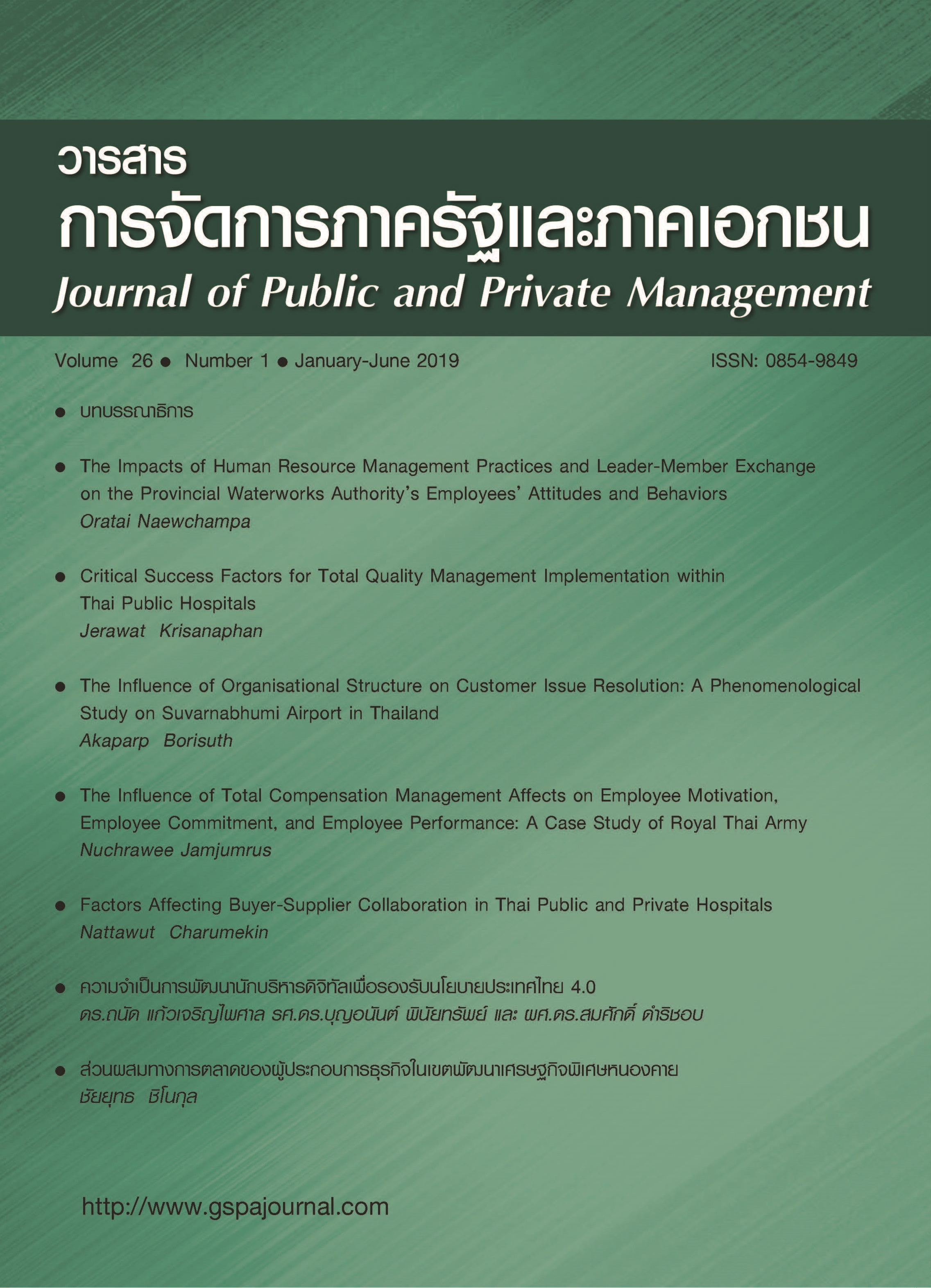The Infuence of Total Compensation Management Affects on Employee Motivation, Employee Commitment, and Employee Performance: A Case Study of Royal Thai Army
Abstract
Total compensation management (TCM) has been widely considered as the strategic instrument used by the organizations for its employee attraction, motivation, retention and performance in the human resource management (HRM) research feld. There is a great challenging for public sectors in understanding and implementing compensation strategy to keep sustainable of employee performance. This study intends to propose and develop the research model and conceptual framework for of TCM namely; cash and beneft implementation with employee commitment and employee motivation as the mediating role in relation to employee performance particularly in context with the Royal Thai Army (RTA) organization.
It is shown from the results of path analysis and structural equation model (SEM) that TCM in beneft has direct effect to employee commitment, employee motivation and employee performance and has indirect effect through employee commitment and employee motivation. On the other side, TCM in cash compensation does not have direct effects on employee performance but has indirect effect through employee commitment and employee motivation. As these relationships are developed from the causal relationship among variables. Therefore, the adoption of a theoretical model on TCM, employee commitment, employee motivation and employee performance would facilitate the policy makers, public offcials and HRM practitioners toward the better understanding in TCM practices with the focus on the identifed during TCM implementing together with employee commitment and employee motivation in their organizations.


